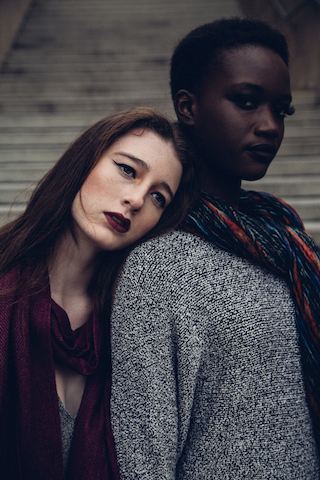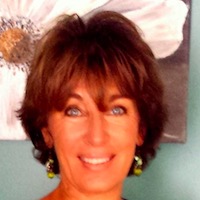There was a point when I noticed that everyone in my life seemed to talk a lot more than I did.
I wasn’t a talker, but I enjoyed listening.
I was pretty young; maybe my early 20s, and I didn’t know things other people knew—that women talk more than men in general, or that men think differently about sex than women.
I didn’t know much of anything about the world, really. I was terribly naïve.
I thought that maybe something was wrong with me, and I needed to talk more to be normal. Being different from everyone else made me feel left out and lonely. However, I did keenly observe people.
I was often so focused on feeling like an outsider that it kept me from realizing people were talking to me. It took me a long time (again—I’m a slow learner) to realize that many people told me things they didn’t tell everyone else.
The only reason I actually noticed was that I was told repeatedly, “Oh my God, I don’t know why I’m telling you all this.”
It finally dawned on me that maybe listening wasn’t such a bad thing.
My work as a grief counselor, years later, deepened my understanding that simply being present, being a witness to someone’s suffering, is one of the greatest gifts we can give another. Don’t most of us give advice when someone is hurting or something is not working in his or her life? Men especially (I figured that one out finally) are wired to fix things.
Advice-giving in general comes naturally to our species, and is mostly done with good intent. But in my experience, the motivation behind a lot of advice has as much to do with self-interest, and not interest in the other’s needs (I know that’s a tough pill to swallow)—and some advice can end up doing more harm than good.
Many of us want to be really good helpers, making sure we say the right things and give good advice. We really do. We want to do the right thing and minister to the needs of the person we are helping, but taking the time and patience to really be present is often a challenge. So we focus on how to fix this thing, whatever it is.
True presence is the essence of connection. It’s what we hunger for most on our earthly journey.
Yet, especially, when we’re in the presence of deep suffering, we can barely stand to be there, as if we were in danger of catching a contagious disease. We want to apply our “fix,” then cut and run, figuring we’ve done the best we can to “save” the other person.
The more uncomfortable someone is with a situation, the more likely they are to offer advice.
Just recently a client had this experience when she shared with her good friend that she found out she has cancer and is very scared. His response was that she’d be fine, and then started making jokes to get her mind off of her condition. She wanted to crawl away at a time when she most needed the comfort of being seen.
The human soul doesn’t want to be advised or fixed or saved. It simply wants to be witnessed—it longs to be seen, heard, and befriended exactly as it is. When we make that kind of deep bow to the soul of a suffering person, our respect reinforces the soul’s healing resources, the only resources that can help the sufferer make it through.
In being heard, we feel seen. Actively listening allows the door to the deepest parts of the speaker to open.
Someone who is unafraid to accompany another in his suffering makes the other less afraid of himself. It is the greatest gift to be present—simply and fully present—in the same way one needs to be at the bedside of a dying person.
It is at that bedside where we finally learn that we have no answers or solutions to offer those who suffer deeply. And yet, we have something better: our gift of self in the form of personal presence and attention, the kind that invites the other’s soul to show up.
We not only apply this over-zealous need to “fix” to others we see in pain, we often apply it to ourselves.
Often the best way to address what ails us is to be present with our own emotions, thoughts, and senses. We don’t need to “fix” ourselves all the time, but perhaps observe with curiosity what we’re feeling because there is a reason under that feeling that we need to spend time with.
So here’s my advice: Be fully present, listen deeply, and ask the kind of questions that give the other a chance to express more of his or her own truth, whatever it may be. Don’t give advice, unless someone insists. As you are being present—listening—you will know if and when advice is a wise thing to give.
I’m still not much of a talker, but these days I don’t feel like such an outsider anymore, and that’s a nice thing.
“This is the first, the wildest and the wisest thing I know: that the soul exists and is built entirely out of attentiveness.” ~ Mary Oliver
~
~
~
Author: Christina de Valencia
Image: Shamim Nakhai/Unsplash
Editor: Taia Butler


 Share on bsky
Share on bsky





Read 0 comments and reply